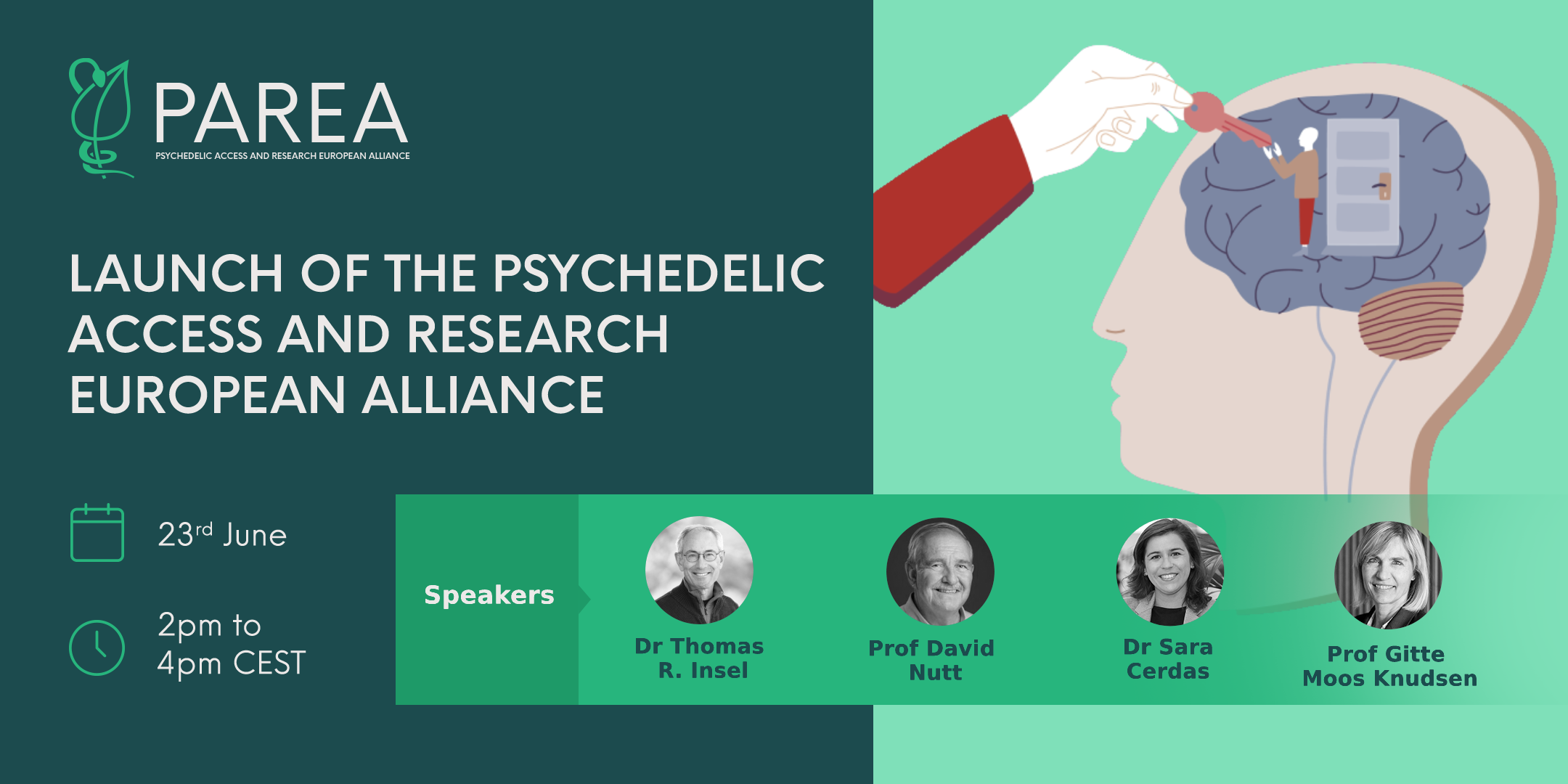Preparing Europe for Novel Psychedelic-Assisted Therapies
PAREA launch
AGENDA
We all know the feeling of helplessness when we are unable to help people – often our loved ones – who are affected by mental health conditions, addictions or neurological ailments, including chronic pain. We know that mental healthcare is in crisis and we don’t have enough options to truly help many people in need. While it is true that there are many people who wouldn’t be here if it weren’t for antidepressants, there are also millions who are on them and continue to struggle or experience serious side effects. Moreover, the global expenditure on mental health amounts to a mere 2% of general expenditure (WHO, 2021) and only a minority of people with mental health conditions in Europe receive treatment. We have a long way to go in improving mental health care, and in achieving the relevant UN Sustainable Development Goals by 2030.
Against this backdrop, psychedelic-assisted therapies (PAT) show a promise of being a potent new class of treatments for mental, neurological and substance use disorders, as suggested by the rapidly growing, rigorous, and compelling body of research.
In 2021 alone, ground-breaking findings were published in journals such as Lancet, Nature and New England Journal of Medicine. Top tier US universities like NY University, Johns Hopkins and the University of California are following the example of Imperial College London in the UK, which in 2019 became the first to establish a centre dedicated to the study of psychedelic compounds.
During 2017 – 2019, the US FDA granted Breakthrough Therapy designation to PAT for three trials investigating psilocybin for depression and MDMA for PTSD.
The fundamental therapeutic benefit of PAT comes from the combination of psychedelic medicine and therapy. The drug is a catalyst for treatment, not a treatment in itself. Patients report that they get something deeply meaningful out of the altered consciousness - a sense of unity, of connection. Therapy allows them to incorporate that into an enduring shift in identity and to build a better self. In other words, psychedelics’ novel therapeutic value stems from their role as enhancements to a psychotherapeutic process, grounded in a relationship-centred approach, that views mental health through a biopsychosocial lens.
The renaissance of research into the neuroscience and therapeutic applications of PAT represents one of the most promising and important initiatives in brain science and neuropsychopharmacology in recent times, especially given the huge unmet needs in the therapeutic areas that they promise to treat.
At the same time, much has to be done in Europe to start accommodating those advances and to accelerate the safe and responsible integration of PAT into EU healthcare systems in the years to come. This work must start now.
With this in mind, the Psychedelic Access and Research European Alliance – PAREA was born. We bring together 15 members, including EU patient advocacy groups in the field of mental health, neurology and chronic pain, scientific associations – neuropsychopharmacologists and cancer societies, psychedelic foundations, as well as industry partners.
We will be launching this partnership on 23rd June, 2pm – 4pm CEST.
SPEAKERS
Dr Thomas R. Insel - Former Director of the US National Institute of Mental Health (2002 – 2015), neuroscientist, psychiatrist, entrepreneur, and author.
Professor David Nutt - Edmund J Safra Professor of Neuropsychopharmacology at Imperial College London and PAREA Chair.
Dr Sara Cerdas - Member of the European Parliament
Professor Gitte Moos Knudsen - University of Copenhagen and President of the European College of Neuropsychopharmacology






